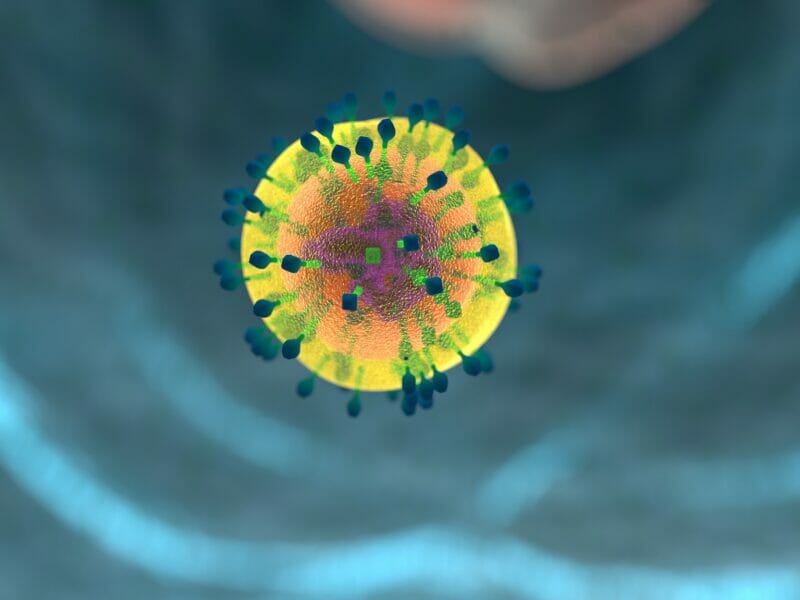Introduction to Bacopa Monnieri and Inflammation
Bacopa Monnieri is an ayurvedic plant that has been used for centuries in traditional medicine. It is known for its nootropic and neuroprotective properties, and is now being studied for its potential to reduce inflammation. Studies have shown that extracts of Bacopa Monnieri can inhibit inflammatory pathways in the brain, reduce the release of pro-inflammatory cytokines, and reduce nitric oxide and IL-6 levels. In vitro studies have also demonstrated that the extract of Bacopa Monnieri has anti-inflammatory activity, and can inhibit the release of TNF-α from activated N9 microglial cells.
In addition, various extracts of Bacopa Monnieri have been shown to have anti-inflammatory effects in animal models of traumatic brain injury, and to reduce oxidative stress and inflammation in rat brain regions. The anti-inflammatory activity of Bacopa Monnieri has been attributed to its bioactive compounds, which have been inferred to have a multi-target treatment strategy for neurological diseases. This suggests that Bacopa Monnieri may have potential as a medicinal herb for the treatment of chronic inflammation and brain injury. Furthermore, controlled trials on cognitive effects of Bacopa Monnieri have shown promising results, suggesting that it may be a useful herbal medicine for the treatment of inflammatory conditions such as inflammatory bowel disease.
Anti-Inflammatory Effects of Bacopa Monnieri
Bacopa monniera, an ayurvedic plant, has been used for centuries in traditional medicine to treat a variety of ailments. Recent studies have shown that bacopa monnieri inhibits inflammatory pathways, suggesting its potential as an anti-inflammatory agent. In particular, bacopa monnieri has been shown to inhibit the inflammatory response in microglial cells, as well as the expression of inducible nitric oxide synthase in the central nervous system. This suggests that bacopa monnieri may be able to modulate inflammatory signals and reduce the release of inflammatory mediators.

In addition, bacopa monnieri extract has been shown to have a neuroprotective effect, which may be due to its ability to inhibit the early event in the development of inflammation.
Furthermore, bacopa monnieri has been shown to have anti-inflammatory activity, which may be due to its bioactive compounds inferred multi-target treatment strategy.
This suggests that bacopa monnieri may be a novel therapeutics for the treatment of systemic inflammation, as well as a potential treatment for the underlying mechanism of traumatic brain injury.
In addition, bacopa monnieri has been shown to reduce the release of tumor necrosis factor and other inflammatory mediators, suggesting its potential role in the treatment of Alzheimer’s disease.
In Vitro Studies of Bacopa Monnieri and Inflammation
Wow, it looks like bacopa monnieri, an ayurvedic plant, has some serious potential when it comes to inflammation! In vitro studies have shown that bacopa monnieri inhibits inflammatory responses, and current studies are examining its ability to modulate the release of proinflammatory cytokines. In fact, bacoside A, an isolated molecule from bacopa monniera, has been shown to significantly inhibit the release of cytokines from activated N9 microglial cells.
What’s more, bacopa monnieri has been used in ayurvedic medicine for centuries to treat a variety of ailments, including CNS inflammation, acute pain, and even dementia. It’s even been suggested that bacopa monnieri extract may play a role in the pathogenesis of traumatic brain injury, and its efficacy in treating Alzheimer’s disease has been studied. Plus, bacopa monniera extract has been shown to modulate endogenous cytoplasmic markers in prepubertal mice brain, suggesting its potential as a brain tonic. All in all, it looks like bacopa monnieri could be a great alternative to traditional herbal medicine for treating many inflammatory conditions.
Bacopa Monnieri Exerts Anti-Inflammatory Effects on Cells
Wow, it looks like bacopa monnieri, an ayurvedic plant, has some serious potential! Studies have shown that it can inhibit inflammatory responses in cells, which is pretty amazing. In a current study, the ability of bacopa monnieri to modulate the release of proinflammatory cytokines was examined in an N9 microglial cell line. The results? Bacoside A, an isolated compound derived from bacopa monniera, significantly inhibited the activated N9 microglial cells.
This is really exciting news, as bacopa monnieri could potentially play a role in the treatment of dementia, acute pain, and inflammation. Plus, it could be used as an alternative to traditional medicine, as it has been shown to have a positive effect on activity and health. In fact, an ethanolic extract of bacopa has been found to modulate endogenous cytoplasmic molecules, which could be beneficial in the development of Alzheimer’s disease. Who knew that this herbal medicine could have such a powerful effect?
Bacopa Monnieri and Cells of the Innate Immune System
Wow, it looks like the ayurvedic plant bacopa monnieri has some serious potential! Recent studies have shown that it can inhibit inflammatory responses in cells of the innate immune system. In fact, the current study examines the ability of bacopa to modulate the release of proinflammatory cytokines. And get this – bacoside A, an isolated compound from bacopa monniera, significantly inhibited the activated N9 microglial cells.

This is really exciting news, as it suggests that bacopa monnieri could be used as an alternative bioactive herbal medicine for treating severe traumatic brain injury.
Plus, it could also play a role in the traditional system of medicine of India.
But, less is known regarding the efficacy of bacopa and its action on the central nervous system.
So, more randomized controlled trials are needed to explore the potential of bacopa monnieri and its ability to modulate endogenous cytoplasmic molecules and traditional herbal medicine as an alternative to the blood brain barrier.
Conclusion
In conclusion, the ayurvedic plant Bacopa monnieri has been shown to inhibit inflammatory responses. Wettst et al. found that bacoside A, an isolated compound from Bacopa monnieri, significantly inhibited the release of proinflammatory cytokines when activated N9 microglial cells were exposed to it. This suggests that Bacopa monnieri can modulate endogenous cytoplasmic pathways, making it a viable option for herbal medicine as an alternative to bioactive compounds. This is in line with the traditional ayurvedic medicine tradition, which has long used herbal medicine as an alternative to traditional medicine. The role of Bacopa monnieri in modulating inflammatory responses is an important one, and further research is needed to understand the full extent of its potential.

FAQ’s:
Q1: How does the ayurvedic plant bacopa monnieri inhibit inflammation?
A1: The ayurvedic plant bacopa monnieri has been shown to inhibit inflammation by modulating the release of proinflammatory cytokines.
Q2: What role does bacopa monnieri play in inhibiting inflammation?
A2: Bacopa monnieri has been shown to play a role in inhibiting inflammation by modulating the release of proinflammatory cytokines.
Q3: How does bacoside A, isolated from bacopa monniera, inhibit inflammation?
A3: Bacoside A, isolated from bacopa monniera, has been shown to significantly inhibit inflammation by modulating the release of proinflammatory cytokines.
Q4: How does bacopa monnieri modulate endogenous cytoplasmic proinflammatory cytokines?
A4: Bacopa monnieri has been shown to modulate endogenous cytoplasmic proinflammatory cytokines by activating N9 microglial cells.
Q5: What is the role of traditional herbal medicine as an alternative to bioactive compounds?
A5: Traditional herbal medicine has been shown to be an effective alternative to bioactive compounds, such as bacopa monnieri, in modulating the release of proinflammatory cytokines.
Q6: How does bacopa monnieri fit into the ayurvedic medicine tradition?
A6: Bacopa monnieri is an important part of the ayurvedic medicine tradition, as it has been shown to modulate the release of proinflammatory cytokines.



 Antioxidant Properties Of Bacopa Monnieri
Antioxidant Properties Of Bacopa Monnieri
